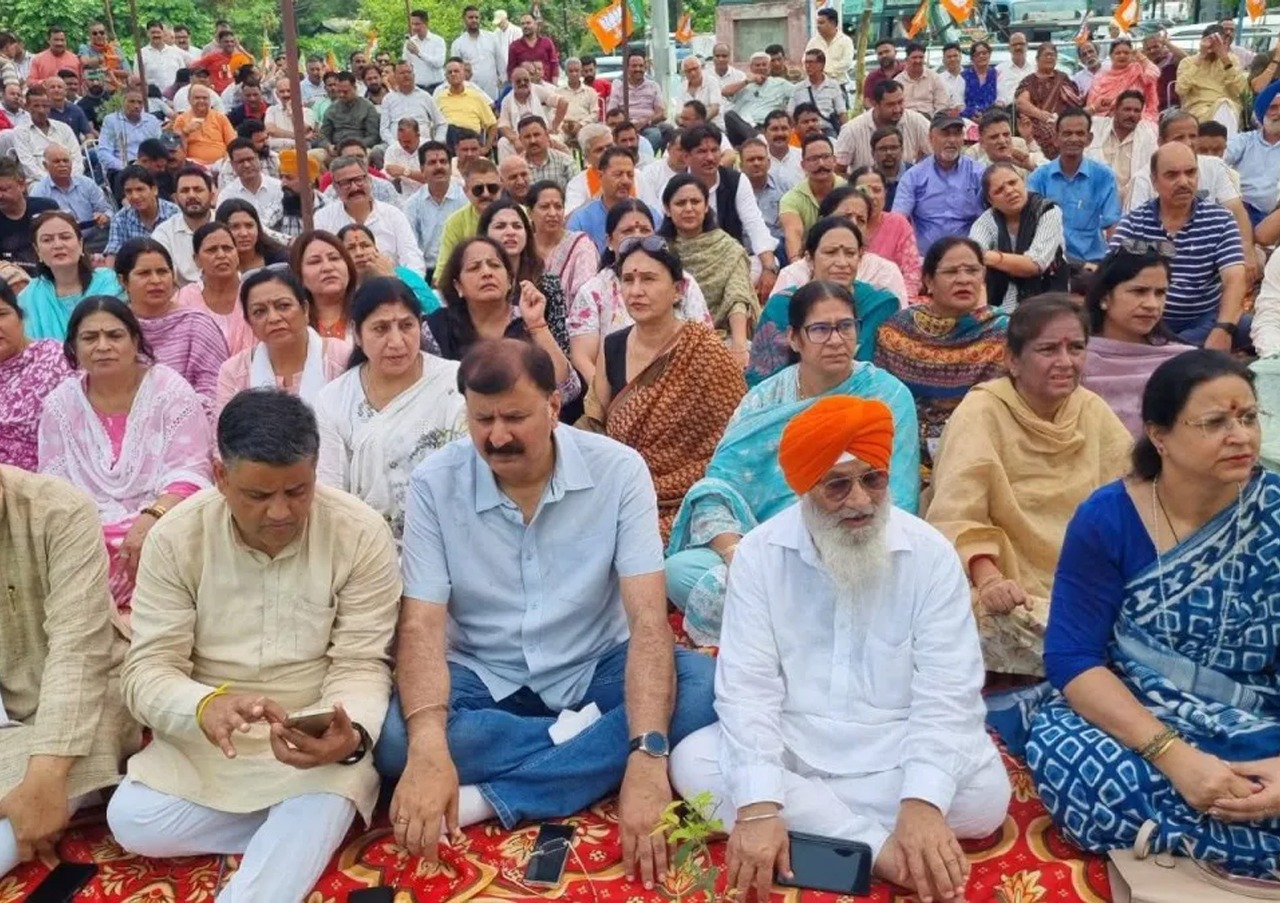
Jammu:
A delegation of 28 BJP MLAs staged a protest in front of the Civil Secretariat today, demanding the revocation of a government order making Urdu language mandatory for candidates applying for Naib Tehsildar recruitment in Jammu and Kashmir. The move has sparked widespread unrest among the party’s elected representatives and young aspirants.
The protest, led by Leader of the Opposition in the Assembly, Sunil Sharma, called the directive “discriminatory” and asserted it would disadvantage candidates who had no opportunity to learn Urdu. “We will not allow any language to be imposed on the people of Jammu which they are not familiar with,” Sharma said at the demonstration.
During a closed-door meeting chaired by BJP UT President Sat Sharma, MLAs affirmed their resolve to escalate the agitation if the government failed to withdraw the notification. The protest began by submitting a memorandum in Srinagar on 13 July, and today’s sit-in at the Civil Secretariat was described as the “first step” in a prolonged struggle.
The BJP has also taken its appeal to Lieutenant Governor Manoj Sinha, urging his intervention. The party argued the Urdu requirement contradicts the spirit of linguistic diversity enshrined in the J&K Official Languages Act 2020, which recognises Hindi, Dogri, English, Urdu, and Kashmiri as official languages.
Veteran BJP leaders such as former Deputy Chief Minister Kavinder Gupta and DDC Chairman Bharat Bhushan addressed the sit-in at Dr B R Ambedkar Chowk, Kashmir Poonch and Kathua, branding the mandate as “anti-people” and warning that the protest would escalate if the order were not revoked.
MLA Arvind Gupta described the condition as “a violation of equity and meritocracy,” while MLA Prof Gharu Ram Bhagat labelled it “unfair and unconstitutional” . MLA Vikram Randhawa warned that the agitation would spread across all districts unless the policy was scrapped.
The controversy originated from a 9 June notification by the J&K Services Selection Board, which included a working knowledge of Urdu as a mandatory qualification for 75 Naib Tehsildar positions.
The BJP is advocating for a return to earlier recruitment norms—specifically, the 2011 model, which allowed post-selection language training rather than pre-requisite knowledge.
Party sources claimed they would stage a “gherao” of the Civil Secretariat on 17 July if the government did not address their demands. They also plan protests in other parts of the Jammu division to ramp up pressure.
The sit-in underscores deep regional sensitivities in Jammu, where Hindi, Dogri, and English predominate, and Urdu is less commonly used. The BJP argues that forcing Urdu knowledge would marginalise thousands of local aspirants, while preserving Urdu’s status in the region remains contested.
Officials at the Civil Secretariat have yet to respond to the BJP’s memorandum. With legislative and street-level agitation gathering momentum, pressure is mounting for the administration to reconsider the policy.
The protest is the latest in a prolonged political battle in Jammu and Kashmir over language, identity, and employment rights in the post-Article 370 context.